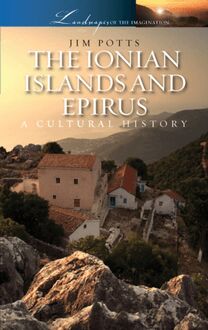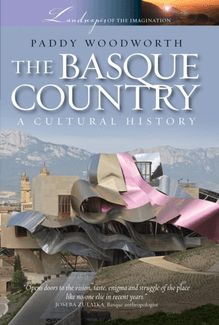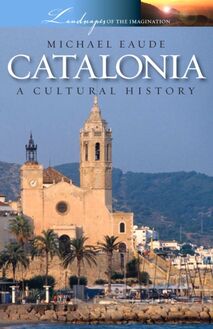-
 Univers
Univers
-
 Ebooks
Ebooks
-
 Livres audio
Livres audio
-
 Presse
Presse
-
 Podcasts
Podcasts
-
 BD
BD
-
 Documents
Documents
-
- Cours
- Révisions
- Ressources pédagogiques
- Sciences de l’éducation
- Manuels scolaires
- Langues
- Travaux de classe
- Annales de BEP
- Etudes supérieures
- Maternelle et primaire
- Fiches de lecture
- Orientation scolaire
- Méthodologie
- Corrigés de devoir
- Annales d’examens et concours
- Annales du bac
- Annales du brevet
- Rapports de stage
La lecture à portée de main
Vous pourrez modifier la taille du texte de cet ouvrage
Découvre YouScribe en t'inscrivant gratuitement
Je m'inscrisDécouvre YouScribe en t'inscrivant gratuitement
Je m'inscrisEn savoir plus
Vous pourrez modifier la taille du texte de cet ouvrage
En savoir plus

Description
Sujets
Informations
| Publié par | Andrews UK |
| Date de parution | 21 octobre 2013 |
| Nombre de lectures | 0 |
| EAN13 | 9781908493880 |
| Langue | English |
| Poids de l'ouvrage | 1 Mo |
Informations légales : prix de location à la page 0,0450€. Cette information est donnée uniquement à titre indicatif conformément à la législation en vigueur.
Extrait
Title Page
Lagos
A Cultural and Historical Companion
Kaye Whiteman
Publisher Information
First published in 2012 by Signal Books Limited
36 Minster Road
Oxford OX4 1LY
www.signalbooks.co.uk
Digital edition converted and distributed in 2013 by
Andrews UK Limited
www.andrewsuk.com
© Kaye Whiteman, 2012
The right of Kaye Whiteman to be identified as the author of this work has been asserted by him in accordance with the Copyright, Design and Patents Act, 1988.
All rights reserved. The whole of this work, including all text and illustrations, is protected by copyright. No parts of this work may be loaded, stored, manipulated, reproduced or transmitted in any form or by any means, electronic or mechanical, including photocopying and recording, or by any information, storage and retrieval system without prior written permission from the publisher, on behalf of the copyright owner.
Production: Devdan Sen
Cover design: Devdan Sen
Cover images: Lolade Adewuyi
Illustrations: Lolade Adewuyi pp.81, 109, 209, 246, 251; Armet Francis p.99; courtesy Kaye Whiteman pp.83, 121, 147, 158, 179, 192, 213; Wikipedia Commons pp.i, 11, 21, 54, 72, 134, 140, 166, 173, 220, 235, 240; drawings by Nicki Averill pp.25, 46, 51, 65, 69, 72, 138, 223, 228; maps by Sebastian Ballard
Foreword by Femi Okunnu
When in early February 2012 Kaye Whiteman proposed to me in London (a few days before the end of my holidays) that I should write the foreword to Lagos: a Cultural and Historical Companion , I thought momentarily of the punishing programme ahead of me in Lagos. I was nonetheless persuaded that it was a challenge I could not refuse. Kaye gave me a very tight deadline for when the foreword for was needed.
I accepted the challenge primarily because history was my first love, not law. And I am part of the history of modern Lagos in many ways. Lagos, in any case, is my birthplace. In between my activities as President of the Ansar-ud-Deen society of Nigeria and other social and charitable work, I had to find time to meet Kaye Whiteman’s deadline.
And what a tour de force this book is for all lovers of history and those interested in Nigeria’s political and socio-economic development and her future role in the world economy. For the book is not only about the history of Lagos - it has many vignettes of history, including the colonial administration - but also covers its topography and physical planning, its art and culture and its political and social life. I knew Kaye as a journalist; I did not know the pub crawler side of him, though that is part of the life of a successful journalist.
The book starts with the Portuguese connection, and the naming of Eko as Lagos. Kaye at times interchanges Isale Eko with “Eko” or Lagos Island. It is worth emphasizing that Isale Eko is only that part of Lagos Island where Iga Idunganran (the Oba’s Palace) is situated. Isale Eko is the “heart” of Lagos, as Lagos remains the “heart” of Nigeria, in spite of losing the Federal Capital status.
The original inhabitants of Lagos were the Aworis, but the dominant ethnic group in Lagos remains the non-Awori Yorubas from the hinterland. Kaye highlights, quite rightly, the settlement of the Binis in historic Lagos; the role of the Nupe as a dominant force amongst the early settlers, as well as the Saros and the Amaros after the abolition of the slave trade. The book discusses the reception of Christian missionaries, but could have had more on the earlier reception of Islam by a large section of the Eko community.
From its governance under the British Consulate, Lagos (coterminous with the present Lagos State) became a British colony in 1861 by virtue of the controversial Treaty of Cession. At first it was part of the colonial administration in Freetown, later part of the then Gold Coast, and finally it was placed directly under London’s control until Lagos lost its independence when it was merged with the Protectorate of Nigeria in 1906.
In his “Prominent Personalities” Kaye includes many names, but omits to bring into more prominence others like J. H. Doherty in commerce and Chief Tijani Oluwa who fought the British administration successfully in the Privy Council in the famous Apapa land case.
The history of the creation of Lagos State, in which this writer played a part, should have featured more prominently in the book. And in Chapters 2 and 3, where the development of the ports (Lagos, Apapa and Tin Can Island) and the railways are chronicled, little is said about the highways, bridges and interchanges of my creation, comparable to those found in most cities of the world. The tramway and Carter Bridge are properly in place in the book.
Arts and music feature very well, including Portuguese/Brazilian architecture, which in Brazil is called “colonial” architecture. And Fela Anikulapo Kuti deserves his place in the book. One chapter gives me special pleasure: Chapter 10 “Streets of the Imagination: Everyday Mysteries of the City”. The author describes in minute detail the characteristics and social life in the major streets of Lagos. Kaye knows his onions. Though now in his seventies, he is a Lagos “boy”.
Lagos Island or Eko has now become one sprawling market, from Isale-Eko to Olowogbowo, from Ehingbeti to the Brazilian Quarter and Epetedo, from Ita Faji to Oko-Awo and Idunshagbe, with residential buildings dotted here and there. The Central Business District of Ehingbeti and Oluwole is enjoying a sort of renaissance. The residents of Lagos Island are like squatters in a large marketplace.
But the reality of Lagos State becoming a mega-city is taking shape on Victoria Island, Ikoyi and along the Lekki corridor to Epe, and from Iganmu along the rail/road highway (under construction) to the Benin Republic border, replacing the old Badagry Road. And that is for a start. That is Lagos, with the new Carter Bridge and Eko Bridge of the Gowon era; the mega-city with the long third Mainland Bridge which merges with the Lagos-Ibadan ten-lane expressway. It is the link with the rest of Nigeria.
What, then does tomorrow hold for the city of Lagos? Yes, Lagos has a “soul”; but it is more than a “state of mind”. Lagos is alive. It is this extraordinary life and creative vitality contained within its bounds that will make it a true world city of the future.
A Personal Message from the CEO of BGL
After many visits and my student years at Kings College Lagos, I began my professional life in Lagos back in 1988. In many ways I can say I owe my career progression to the unique collectives of people that only Lagos could have agglomerated within its large population: the intellectuals who inspired my analytical bent and an application to detail; the entrepreneurs who revealed that a “Nigerian Dream” is more likely to be Lagos-based than anywhere else in Nigeria; and the regulators who over the course of my career have gone from the rather inflexible bureaucrats of the military rule period to the dynamic, often diaspora-influenced proponents of private sector-led economic development currently steering the ship of Financial Services guidance.
My peregrination within Lagos - an area tiny in size but huge in strategic importance, human capacity and economic potential - has seen me personally take in the working-class hubs of the mainland, the hard-driven, fast-paced, can-do bustle of the three Islands and the under-appreciated green areas that still dot the thorough modernity of the metropolis. I am grateful to be one of the many officers of BGL PLC whose dint of hard work has taken him or her “from Mainland to Island”.
From my own humble beginnings living happily, but very modestly, in Ogudu and plying the bracing bus-routes from the typically rowdy but entertaining Oworonshoki bus-stop via the Third Mainland Bridge to CMS bus-stop/Marina, I have seen Lagos’ transport system evolve from Danfos to BRTs. My career path has in many ways mirrored the occupational and figurative course of tens of thousands, even hundreds of thousands of professionals and entrepreneurs to whom Lagos has given the opportunity to change their circumstance individually, even alongside their contribution to the finances and development of the metropolitan community.
Speaking of community; this is one of the most remarkable features of the Lagos Metropolis. The fact that it is small but densely populated means that you are never far off from the people whose lives you have touched or vice-versa. However, the frenetic pace of Lagos also means that you could be literally minutes away from a friend, family member, contact or acquaintance and not even catch a glimpse of each other for years! This is why technology integration involving telephony and the Internet is faster in Lagos than anywhere else in the country (and perhaps even the sub-continent). This is why the thriving social scene of Lagos, fuelled by a representative melting pot of peerless and often timeless artists, poets, musicians, broadcasters, media practitioners and entertainment impresarios is of such crucial importance. From our social clubs and parties (our owambes ) to our ubiquitous places of worship, the hard-working and often rather bedraggled swell of Lagosians are offered the opportunity to remind ourselves that a common humanity is what matters the most, even as we strive to make a living. I am convinced that this social cohesion is what has made Lagos - a place that appears to be virtually bursting at the seams sometimes - somehow defy the doubters and thrive, despite the many challenges it faces.
Albert Okumagba
Preface and Acknowledgements
Even in my most exotic creative imaginings, I had not thought that Lagos, even as a city that I have known well for a long time, wo
-
 Univers
Univers
-
 Ebooks
Ebooks
-
 Livres audio
Livres audio
-
 Presse
Presse
-
 Podcasts
Podcasts
-
 BD
BD
-
 Documents
Documents
-
Jeunesse
-
Littérature
-
Ressources professionnelles
-
Santé et bien-être
-
Savoirs
-
Education
-
Loisirs et hobbies
-
Art, musique et cinéma
-
Actualité et débat de société
-
Jeunesse
-
Littérature
-
Ressources professionnelles
-
Santé et bien-être
-
Savoirs
-
Education
-
Loisirs et hobbies
-
Art, musique et cinéma
-
Actualité et débat de société
-
Actualités
-
Lifestyle
-
Presse jeunesse
-
Presse professionnelle
-
Pratique
-
Presse sportive
-
Presse internationale
-
Culture & Médias
-
Action et Aventures
-
Science-fiction et Fantasy
-
Société
-
Jeunesse
-
Littérature
-
Ressources professionnelles
-
Santé et bien-être
-
Savoirs
-
Education
-
Loisirs et hobbies
-
Art, musique et cinéma
-
Actualité et débat de société
- Cours
- Révisions
- Ressources pédagogiques
- Sciences de l’éducation
- Manuels scolaires
- Langues
- Travaux de classe
- Annales de BEP
- Etudes supérieures
- Maternelle et primaire
- Fiches de lecture
- Orientation scolaire
- Méthodologie
- Corrigés de devoir
- Annales d’examens et concours
- Annales du bac
- Annales du brevet
- Rapports de stage












